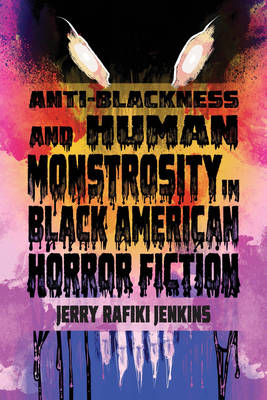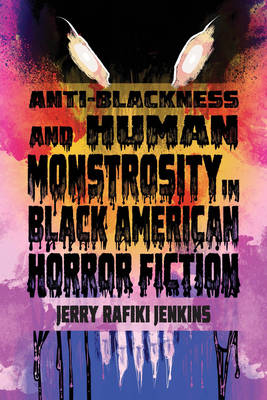
Bedankt voor het vertrouwen het afgelopen jaar! Om jou te bedanken bieden we GRATIS verzending (in België) aan op alles gedurende de hele maand januari.
- Afhalen na 1 uur in een winkel met voorraad
- In januari gratis thuislevering in België
- Ruim aanbod met 7 miljoen producten
Bedankt voor het vertrouwen het afgelopen jaar! Om jou te bedanken bieden we GRATIS verzending (in België) aan op alles gedurende de hele maand januari.
- Afhalen na 1 uur in een winkel met voorraad
- In januari gratis thuislevering in België
- Ruim aanbod met 7 miljoen producten
Zoeken
Anti-Blackness and Human Monstrosity in Black American Horror Fiction
Jerry Rafiki Jenkins
€ 50,95
+ 101 punten
Uitvoering
Omschrijving
In Anti-Blackness and Human Monstrosity in Black American Horror Fiction, Jerry Rafiki Jenkins examines four types of human monsters that frequently appear in Black American horror fiction-the monsters of White rage, respectability, not-ness, and serial killing. Arguing that such monsters represent specific ideologies of American anti-Blackness, Jenkins shows that despite their various motivations for harming and killing Black people, these monsters embody the horrors that emerge when Black American is disassociated from American. Although these monsters of anti-Blackness are dangerous because they can terrorize Black people with virtual impunity, their anti-Black sadism, as Jenkins calls it, is what makes them repulsive. Jenkins examines a variety of these monstrous forms in Tananarive Due's The Between, Victor LaValle's The Changeling, Octavia Butler's Kindred, Nnedi Okorafor's Who Fears Death, and many other works. While these monsters and the texts that they populate ask us to think about the role that anti-Blackness plays in being or becoming American, they also offer intellectual resources that Black and non-Black people might use to combat the everyday versions of human monstrosity.
Specificaties
Betrokkenen
- Auteur(s):
- Uitgeverij:
Inhoud
- Aantal bladzijden:
- 178
- Taal:
- Engels
- Reeks:
Eigenschappen
- Productcode (EAN):
- 9780814259054
- Verschijningsdatum:
- 26/03/2024
- Uitvoering:
- Paperback
- Formaat:
- Trade paperback (VS)
- Afmetingen:
- 152 mm x 229 mm
- Gewicht:
- 267 g

Alleen bij Standaard Boekhandel
+ 101 punten op je klantenkaart van Standaard Boekhandel
Beoordelingen
We publiceren alleen reviews die voldoen aan de voorwaarden voor reviews. Bekijk onze voorwaarden voor reviews.









